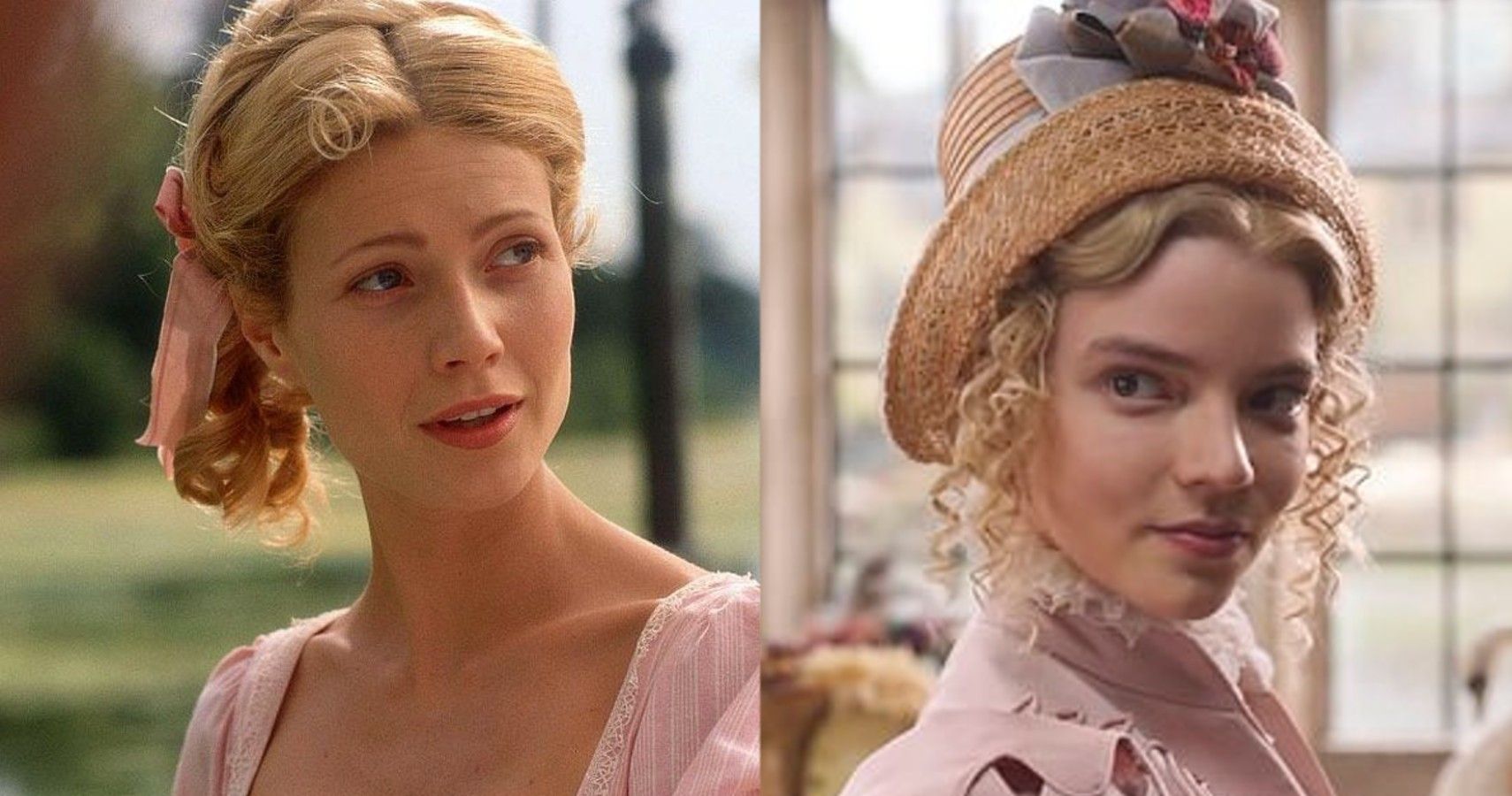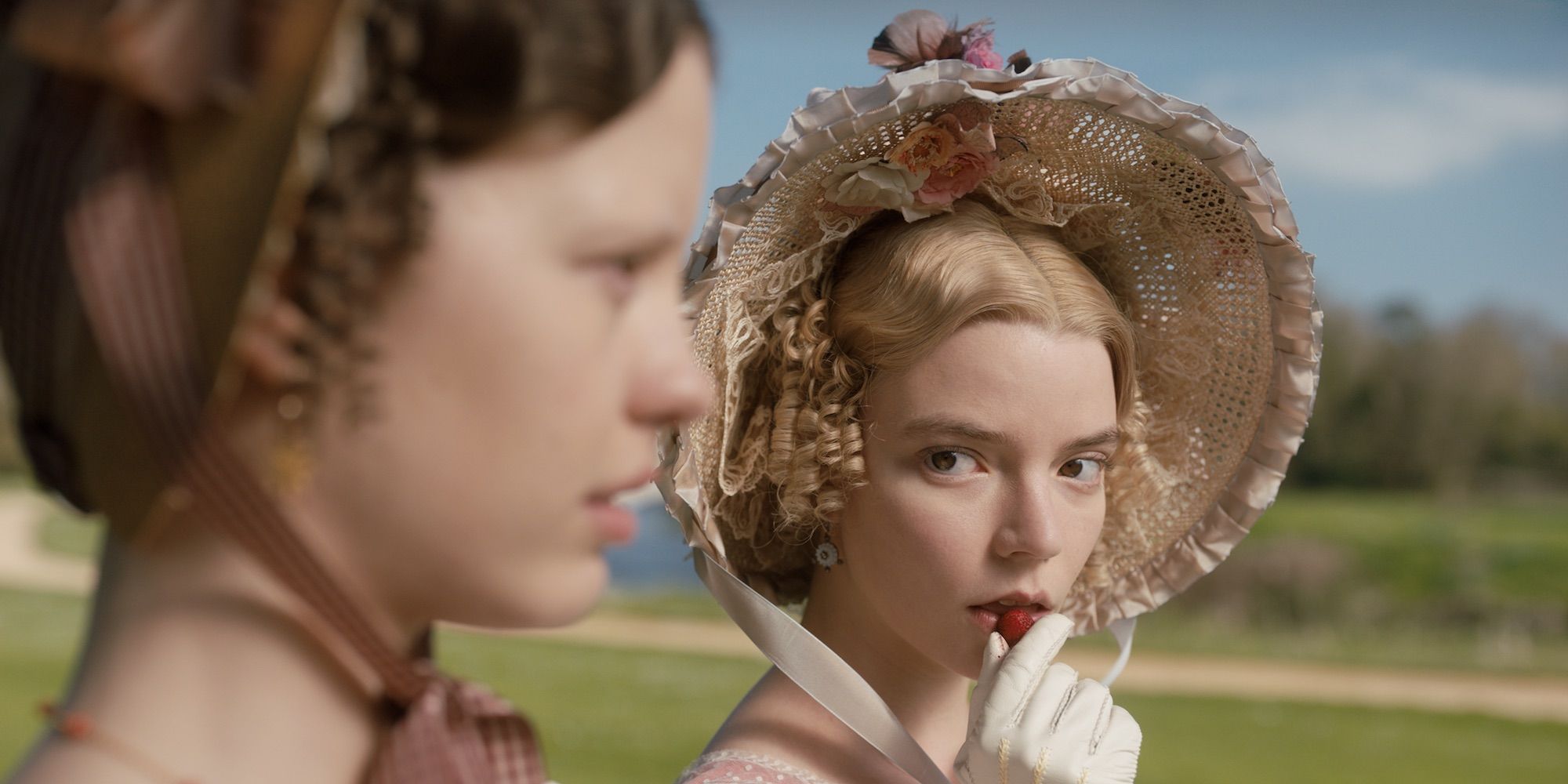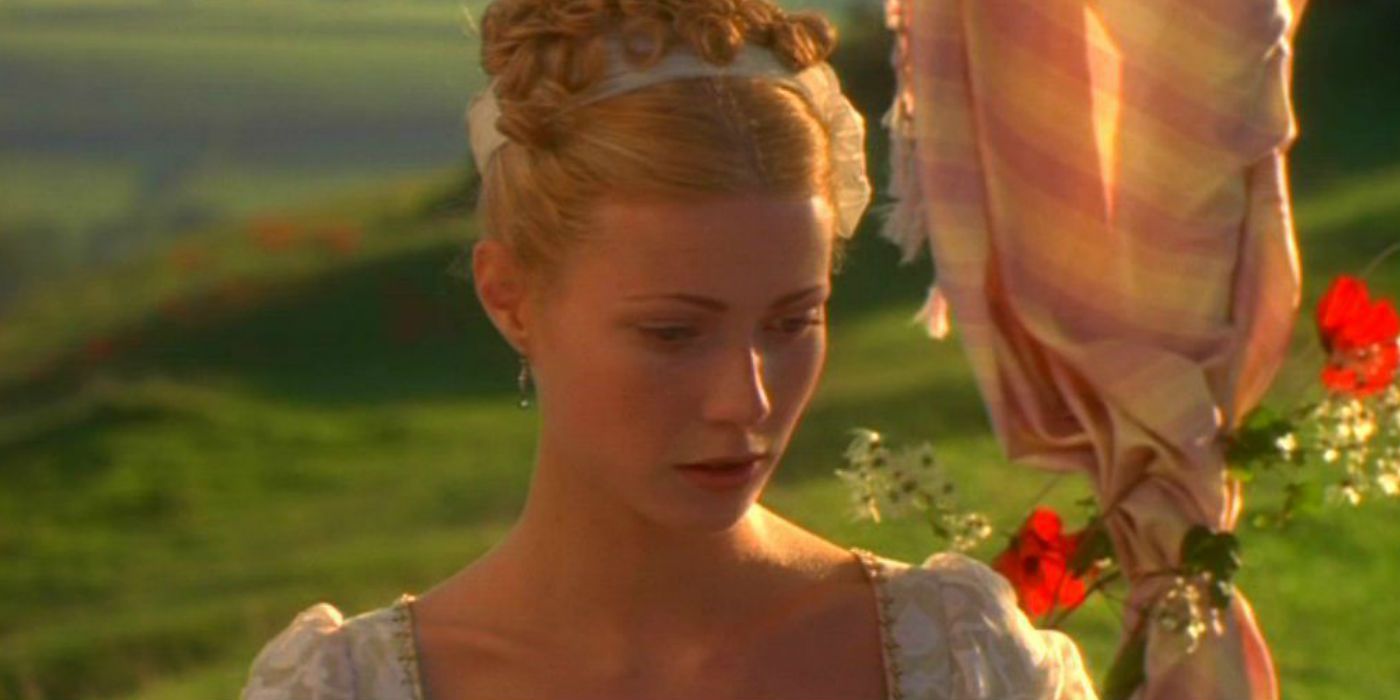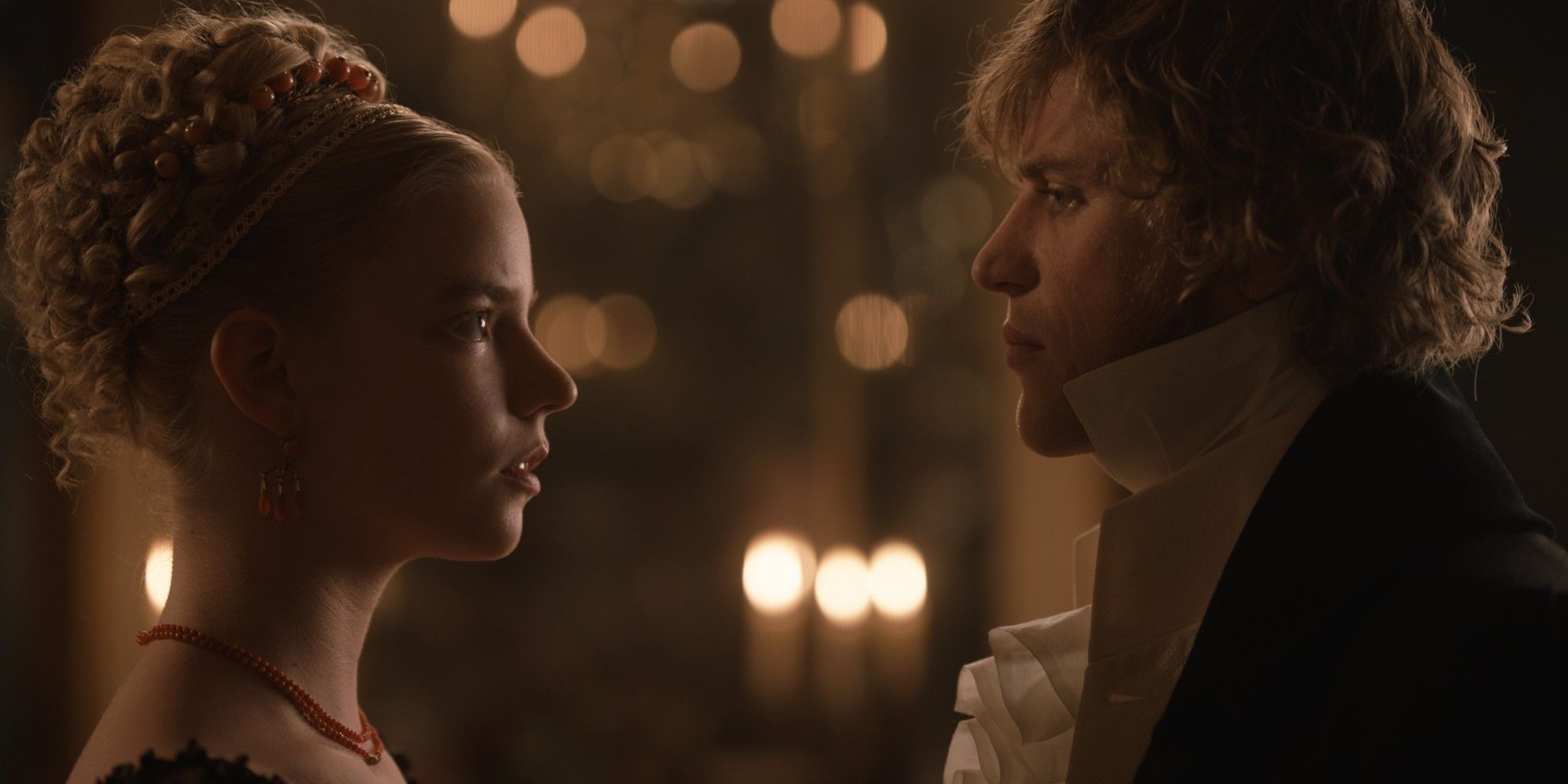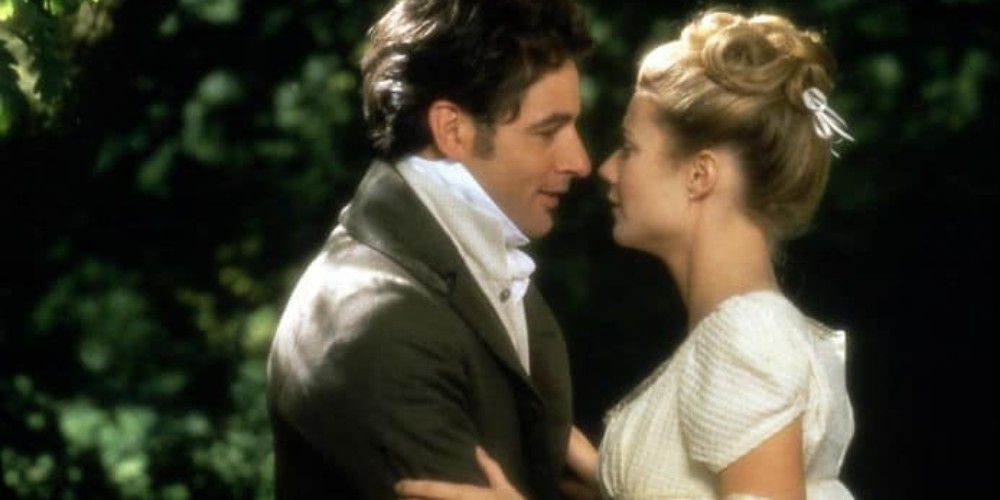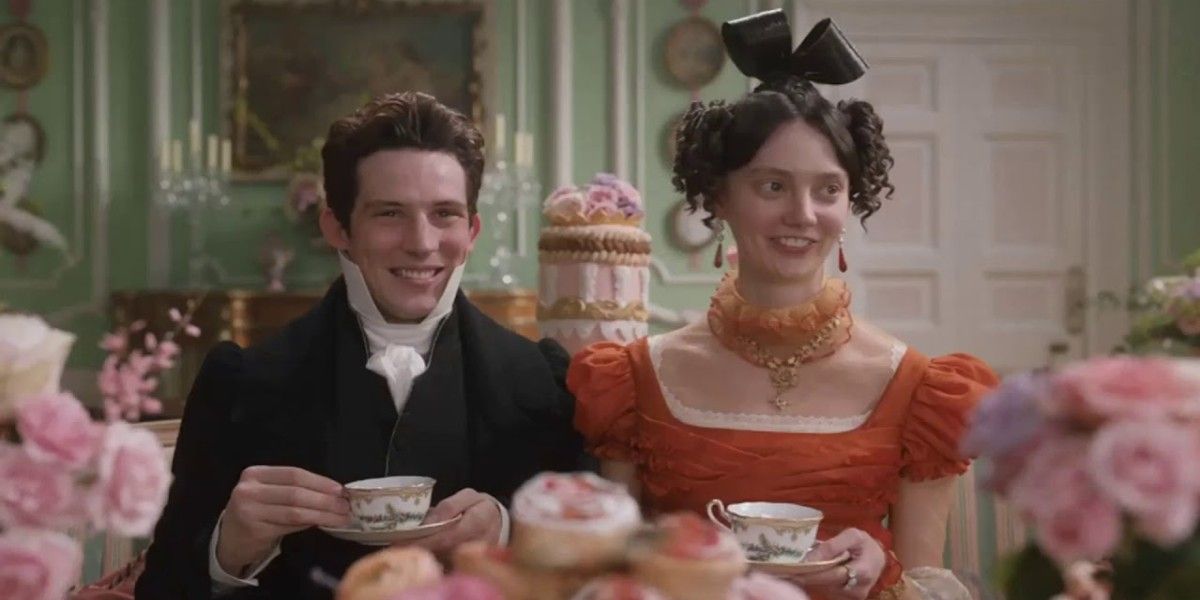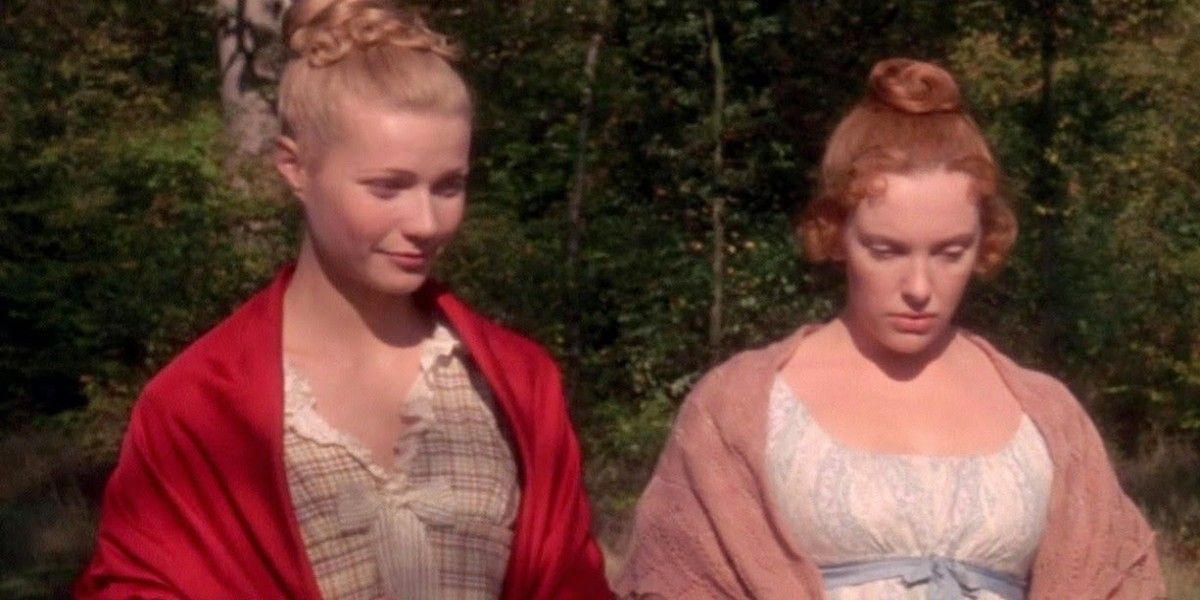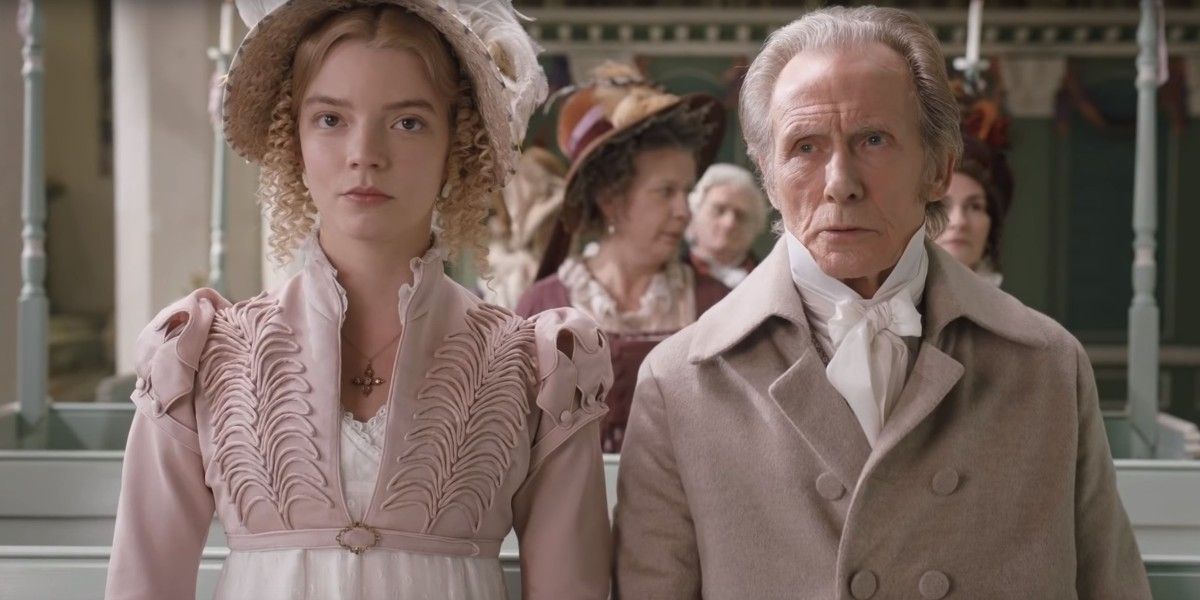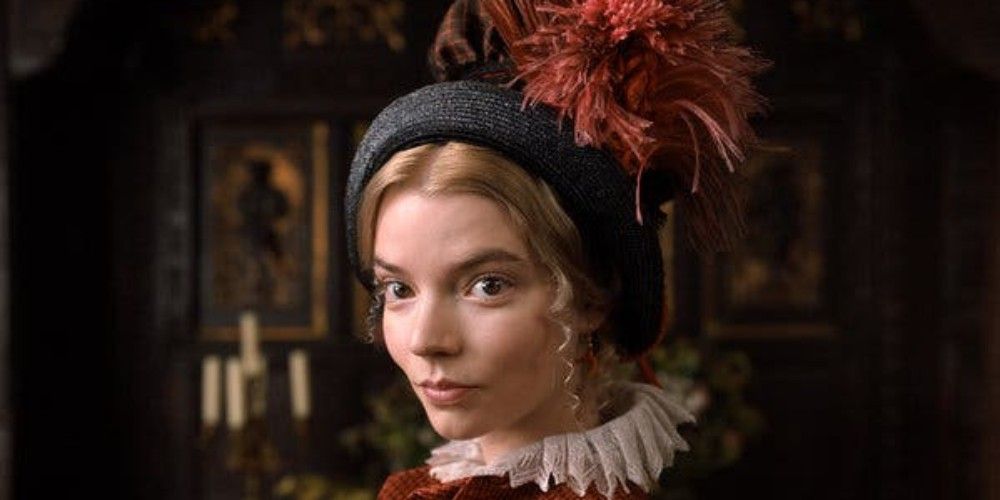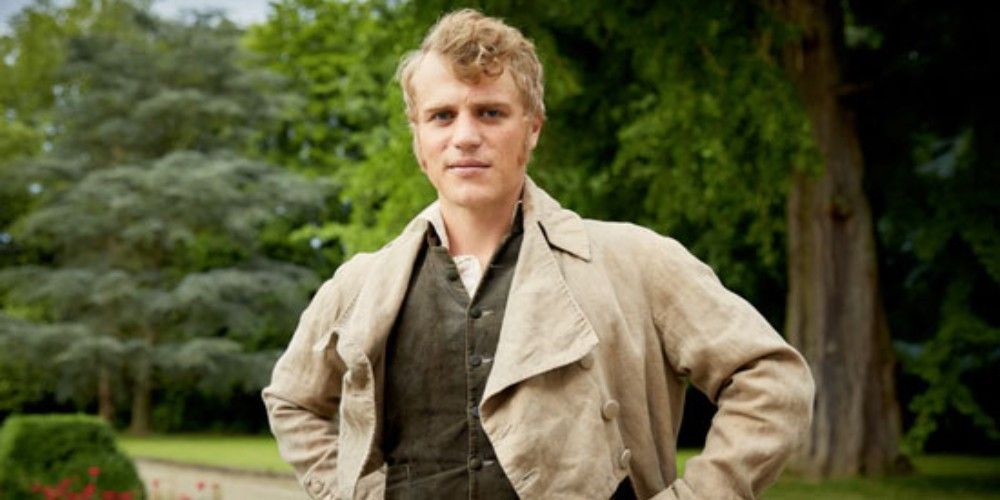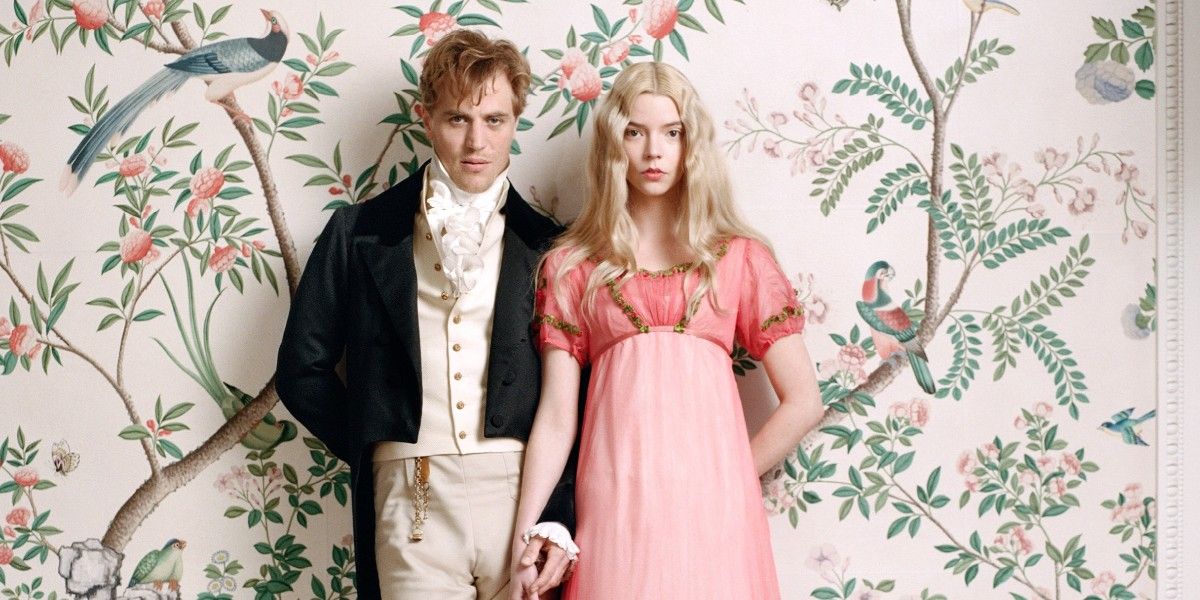At the height of "Austenmania" in the '90s, when a stream of films adapting Jane Austen novels occurred, "Emma" was turned into no less than 3 productions; a mini-series starring Kate Beckinsale, a modern retelling starring Alicia Silverstone (Clueless), and the most celebrated version starring Gwyneth Paltrow (incidentally during "Paltrowmania" as well).
The fictional town of Highbury has been visited once again in 2020, and a new tale about the well-meaning - but hopelessly arrogant- socialite Emma's attempts at matchmaking has arrived. Starring Anya Taylor-Joy as the meddlesome Emma Woodhouse and directed by Autumn de Wilde, it captures Austen's satire and wit, while occasionally falling short of the 1996 version's sentimentality and charm.
2020 VERSION: ART DIRECTION
Viewers familiar with the punchy colors of Marie Antoinette or similar films will appreciate the vivid pigments found throughout the 2020 version of Emma. Though the art direction can at times feel too self-aware, it creates a much more memorable visual experience than the 1996 version (or many recent period films).
Director Autumn de Wilde has intimated that in many period films, clothing and environments will often "already feel antique", whereas historically, the color was how one's wealth was flaunted to the world. Emma's place in society is often established throughout the film by bright flashes of color, and it makes for a dazzling, kaleidoscopic narrative.
PALTROW'S VERSION: WORLD-BUILDING
From the very opening scenes, the 1996 version immerses you in Emma's world. An authoritative narrator is established, which guides viewers through the many social shenanigans. This mimics the satirical nature of author Jane Austen's voice which permeates the novel and gives it its acerbic bite.
As Emma so keenly observed in the Gwyneth Paltrow version, your quaint small English town is your world, and though it may seem diminutive, it is as lush and large as you make it. Even the most remedial gossip can seem world-ending in a bombastically melodramatic way, to the delight of viewers who spot the irony.
2020 VERSION: INTIMACY
There are scenes in the 2020 version that didn't appear in the 1996 version or the book - scenes where characters are far removed from the hustle and bustle of the social gatherings, and simply going about their daily lives. They're often found alone, assembling themselves, and the viewer is given an inside peek at their existence.
There are even moments of intimacy, where the viewer seems to be invited into sequences between characters that seem wholly private. There's nudity, and tender moments, which aren't used to be shocking as much as they are to be revealing and relatable. Not all is frivolity in Emma's world, and much of the social interactions between characters are intended to be performative.
PALTROW'S VERSION: SENTIMENTALITY
There is an earnestness to the 1996 version that the bitingly droll 2020 version doesn't quite have, and its sentimentality makes it feel much more like a fairy tale in that way. Gwyneth Paltrow's Emma is kindly, and even Mr. Churchill cannot be thought of as a rake when played by the dashing Ewan McGregor.
The emotional beats made in every scene, including the uproarious scene where Emma crashes into the lake, make the film seem lighter and gayer than its 2020 counterpart. Certainly less mean spirited, and in so doing earns its happy ending, with Mr. Knightly and Emma finally admitting their true feelings.
2020 VERSION: COMEDY & SATIRE
Similar to the Wes Anderson film The Grand Budapest Hotel, Emma is full of eccentric characters that are thrust into random situations like spirited marionettes on strings. The Austen novel was always rooted in satire, with much of the author's best dialogue coming from the verbal sparring and interplay between her characters.
Anya Taylor-Joy as Emma provides an acerbic wit that seems to have a modern eye for millennial smugness, but it fits the material because the novel never seems like it was written over 200 years ago anyway. The comedy is far removed from the dry drawing-room humor of most BBC productions of decades past and is refreshing in its brazenness without being self-congratulatory with its cleverness.
PALTROW'S VERSION: HARRIET
Though Toni Collette has become well known for playing dark and gritty roles these days, her skills as a character actress served her well in 1996 when she embodied the light-hearted Harriet, Emma's protege. She may seem dim to the rules of polite society, but she was never thought of as a cretin.
In the 2020 version, she's very easy bait because of her mental state, and easy prey for someone like Emma. She doesn't come off as a character who could end up teaching Emma a thing or two about emotional maturity, unlike the Harriet of the 1996 film who just needed to trust in her own decision-making abilities without Emma's interference.
2020 VERSION: MR. WOODHOUSE
The character of Mr. Woodhouse has several amusing moments in the Emma novel, which translated more or less to the 1996 version, but that version did not benefit from the scene-chewing eccentricity of Bill Nighy, who is able to make a character feel like a fully realized presence despite having very little screen time.
Given he has less screen time, Bill Nighy (despite having professed to never reading any Austen books) makes the most of his character's several quirks, amplifying them whenever he's in a scene to work very congruently with the biting satire of the rest of the ensemble cast. He is wholly memorable in a previously unmemorable role.
2020 VERSION: EMMA
Gwyneth Paltrow portrayed Emma with a cherubic sincerity despite the fact that Jane Austen herself set out to write a heroine very different than any of her others. Emma is supposed to be "unlikable" by Austen's own admitting, and it seemed as though Paltrow struggled with being considered anything but angelic.
Anya Taylor-Joy, by contrast, portrays Emma as the disconnected snob that she is, and perhaps too much so in the beginning. But it's her performance that gets the biggest payout, as Emma's character goes through the most significant transformation. By the end, she's completely different than she was at the beginning.
2020 VERSION: MR. KNIGHTLEY
Let it be known that in Jane Austen's novel, Mr. Knightley is 16 years older than Emma. He's more friendly with her father than he is with her, and though they get on well, the relationship is more in keeping with the time period in which Austen wrote than the modern-day. That being said, in both the 2020 version and the 1996 version, Mr. Knightley appears to be only a few years older than Emma.
Jeremy Northam's Mr. Knightley remains two-dimensional, whereas Johnny Flynn's 2020 version provides softer masculinity to the role, which makes more sense considering over time it's he who chides Emma for her own misogynistic views and gets her to change her mind about male and female relations. He also manages to make Mr. Knightley funny and expresses a whole myriad of emotions.
2020 VERSION: THE NOSE BLEED
There are many ways the 2020 version subverts expectations, but perhaps the best way it accomplishes this is with the final scene. Emma and Mr. Knightly have finally declared their affections for one another, and viewers expectantly wait for the epic kiss on the hilltop, when suddenly Emma has an epic nosebleed instead.
It may seem completely off-base, but we feel Austen would have loved this approach, and probably would have written it in herself if her audience was ready for it. It demonstrates that romance is awkward and clumsy, like change, but if Emma can handle it, she's ready to become a better person.

